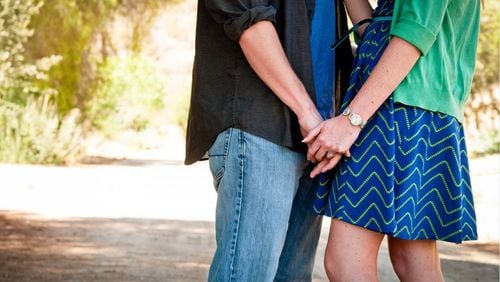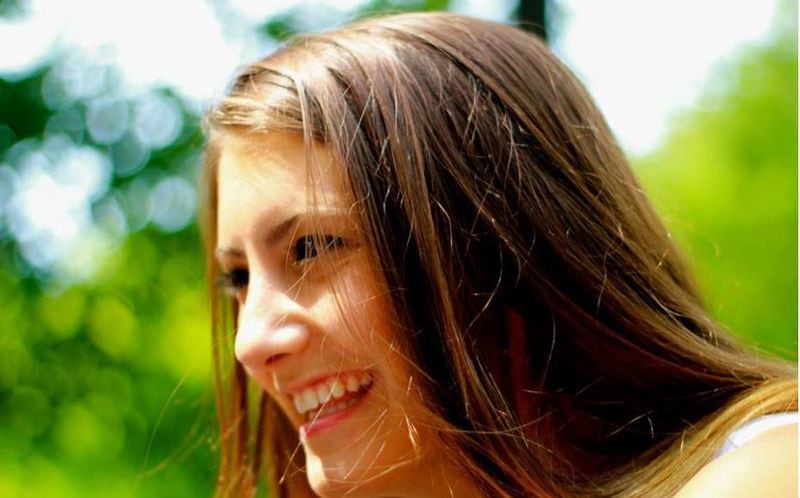AJC intern Allison Gordon wrote an interesting essay today on dating apps, which are increasingly the domain of young adults. A friend recently told me her three kids -- all college students at private universities -- met their significant others through dating apps.
Among the apps favored by college-age students are Tinder and Bumble. (Here is a link to a site that explains how Tinder works, and here is one that explains Bumble, which was started by a disaffected female founder of Tinder. And here is an article on the changing face of Tinder .)
Gordon is a rising junior at Brown University. Born and raised in Atlanta, she is pursuing a B.A. in history. In discussing blog ideas around college life, I asked why so many students use dating apps when potential matches can be found in lit class, at the library and on line for the dining hall. In this piece, Gordon discusses the appeal of dating apps, focusing on a controversial new one for social elites, as defined by their colleges, careers and incomes.
By Allison Gordon
An adult recently asked me why so many of my peers are on dating apps. “In college, you’re surrounded by other people your age,” she began. “Why meet people on Tinder when there’s all these guys in real life?”
In a word, efficiency.
College students are busy. Juggling jobs, classes, and social life leaves little room for serendipity. Dating apps eliminate much of the gray area; you simply swipe right if you find the other person attractive.
But dating apps have faced some harsh criticism. In addition to being superficial and provably racist, I argue they may also contribute to income inequality. I know that seems far-fetched, but stick with me. By allowing users to tailor their preferences, these apps capitalize upon "assortative mating," which has been linked to growing wealth disparities in this country.
Credit: Maureen Downey
Credit: Maureen Downey
For our purposes, “assortative mating” refers to people choosing to marry people like themselves. These similarities can be race, religion, or relevantly, education level. The phenomenon makes sense; we meet and marry the people around us. When you attend college, there’s a higher chance you will “mate” a fellow graduate.
In the past, it was common for doctors to marry their nurses or executives to marry their secretaries. That idea (thankfully) is more and more outdated. Although husbands still tend to make more than their wives, the marital pay gap in heterosexual couples has shrunk significantly. Moreover, around 55 percent of married couple share the same level of education.
Assortative mating can contribute to class stratification because educated people tend to earn more, and when they marry, they increase their combined wealth. Their children also hit the ground running on the social mobility ladder. When both parents are college graduates, they are more likely to read to their kids and advocate for them in schools. Well educated, wealthy parents can also make career connections for their children and help them get into selective schools.
An illuminating New York Times study this year found roughly one in four of the richest college students in America attend an elite college. The "Ivy Plus" schools (the eight Ivies and Duke, M.I.T., the University of Chicago, and Stanford) are among the worst offenders.
So, where do dating apps come into all of this? I was listening to a podcast about Bumble on my way home from work when I made the connection. In my circle, Bumble is the most popular dating app. My girlfriends maintain the guys are cuter, the conversations less creepy, the whole thing more "date-y" than Tinder. It also helps that many of their matches attend good schools.
If you're into beach houses and bachelor degrees, maybe Bumble is your move. If you want to take that a step beyond, consider applying for the League. That's right. Applying.
When I first heard about the League dating app, I thought it was a joke. The app markets itself as an exclusive service for the crème de le crème of singles with a lengthy waiting list and a low acceptance rate. Sound familiar?
To be honest, I tend to judge people’s educational background in my own dating life. It’s super problematic; there can be a cute guy with a funny bio, but if he didn’t go to college, I’m probably not interested. So I understand the appeal. It's the broader implications that concern me.
To join this “high quality” community of singles, potential League users are assessed on their education levels and employment history. Founder and CEO Amanda Bradford says the app asks for your LinkedIn profile because users are less likely to lie in a professional setting. The app promises, “You’ll never have to wonder if that Harvard hottie is too good to be true.” Finally!
(See AJC story on how The League admits its users and how the Atlanta kickoff went.)
Setting up a profile for the League can be nerve-wracking. Users are encouraged to submit high-quality photos to increase their odds of getting in. Like with other apps, singles also choose geographic and age constraints. However, the League uniquely capitalizes on assortative mating by screening on education. A slide-bar allows users to choose “selective” or “highly selective” schools for potential matches. Not much room for community college or technical school there.
Like Bumble, the League also hosts mingling and networking events. When two Buzzfeed writers attended an ultra-exclusive event in the Hamptons, they commented on the lack of diversity and homogenous class makeup. (And delicious food, of course).
In a widely shared LinkedIn post, Bradford said she created the League to "build a community where smart, outspoken, high-achieving women are celebrated and encouraged to progress in their career full-time." I love that idea, but I'm not totally convinced. And not everyone is buying her message.
If you are you a Vanderbilt banker or a Duke grad in Emory law school, there is good news. The League began operations in Atlanta in June, selecting 2002 applicants out of 9,327.
Choosing your mate based on where they went to school just got easier than ever. Thanks to the League, well-educated bliss is only a swipe away.








